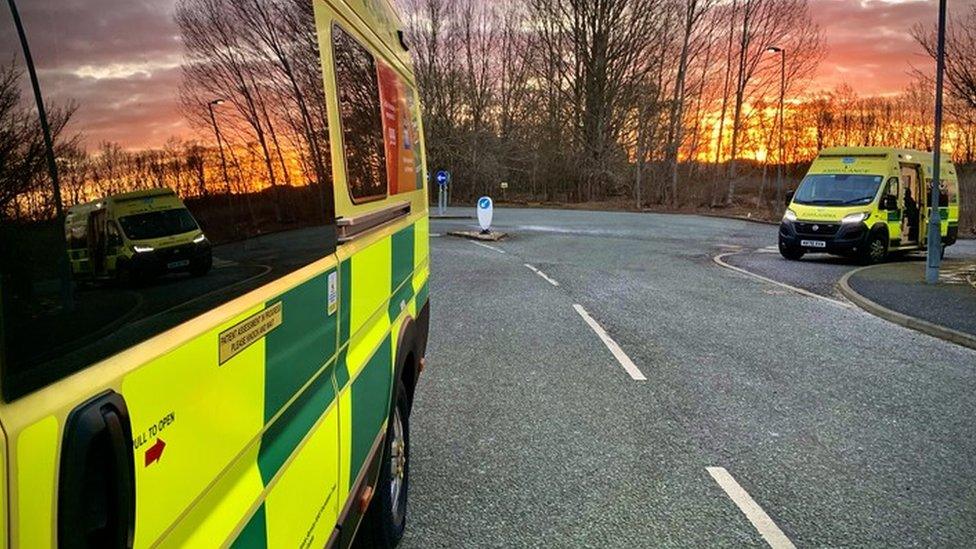South Central Ambulance Service warns of immense pressure
- Published

An unexpected rise in calls has brought increased pressure on the ambulance service
An unexpected sharp rise in 999 calls is putting an ambulance service under "immense pressure".
South Central Ambulance Service (SCAS) said demand on its services were currently at levels normally seen over the new year period.
The service said about 2,000 calls were coming in daily - 400 more than normal.
It said the surge in demand had so far not been associated with Covid and urged people to only dial 999 in genuine life-threatening emergencies.
The service, which covers covers Berkshire, Buckinghamshire, Hampshire and Oxfordshire, said the number of calls to the medical advice line NHS 111 had also risen to more than 4,500 a day - up from 3,000 a day pre-pandemic.
Allow X content?
This article contains content provided by X. We ask for your permission before anything is loaded, as they may be using cookies and other technologies. You may want to read X’s cookie policy, external and privacy policy, external before accepting. To view this content choose ‘accept and continue’.
Operations director Mark Ainsworth said: "The trust is experiencing immense pressure on services due to intense demand on both 999 and 111.
"We are also now at a point where staff have been flat out managing the effects of the pandemic for 18 months, so they are feeling the strain in the face of relentless pressure."
He added the increase in calls had been largely unrelated to Covid "so any increase in cases of the infection is a concern given how that may impact us further and we are now seeing rising numbers across the region, particularly in Reading, Portsmouth and Southampton".
The trust said its crews were also facing delays in handing over patients at some hospitals due to "capacity issues" which was having an effect on its response times.
To increase capacity, clinically-trained staff have been moved into front line operational roles, additional staff are being trained to work in the 111 call centre and private ambulances were being brought in.

Follow BBC South on Facebook, external, Twitter, external, or Instagram, external. Send your story ideas to south.newsonline@bbc.co.uk, external.